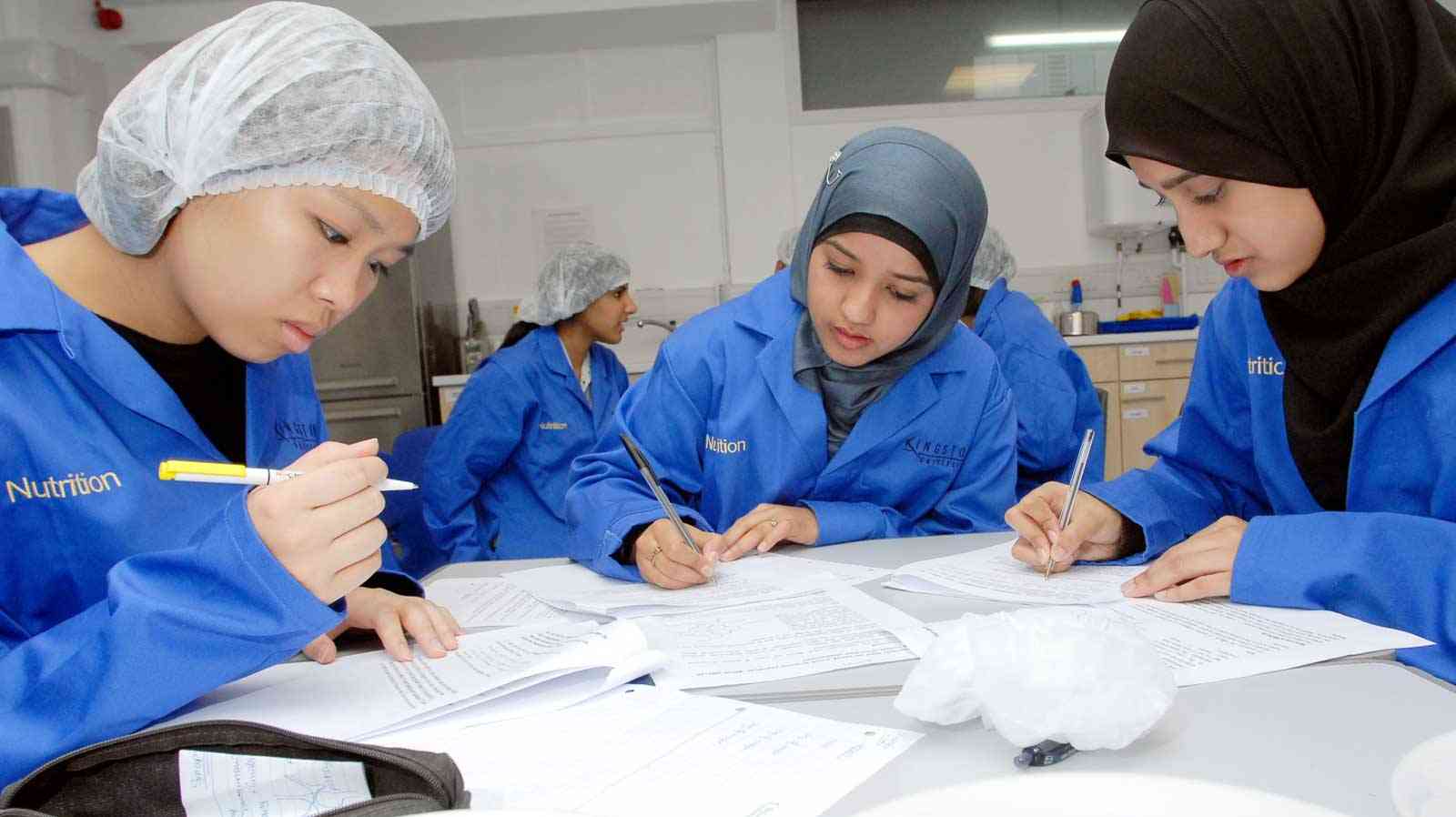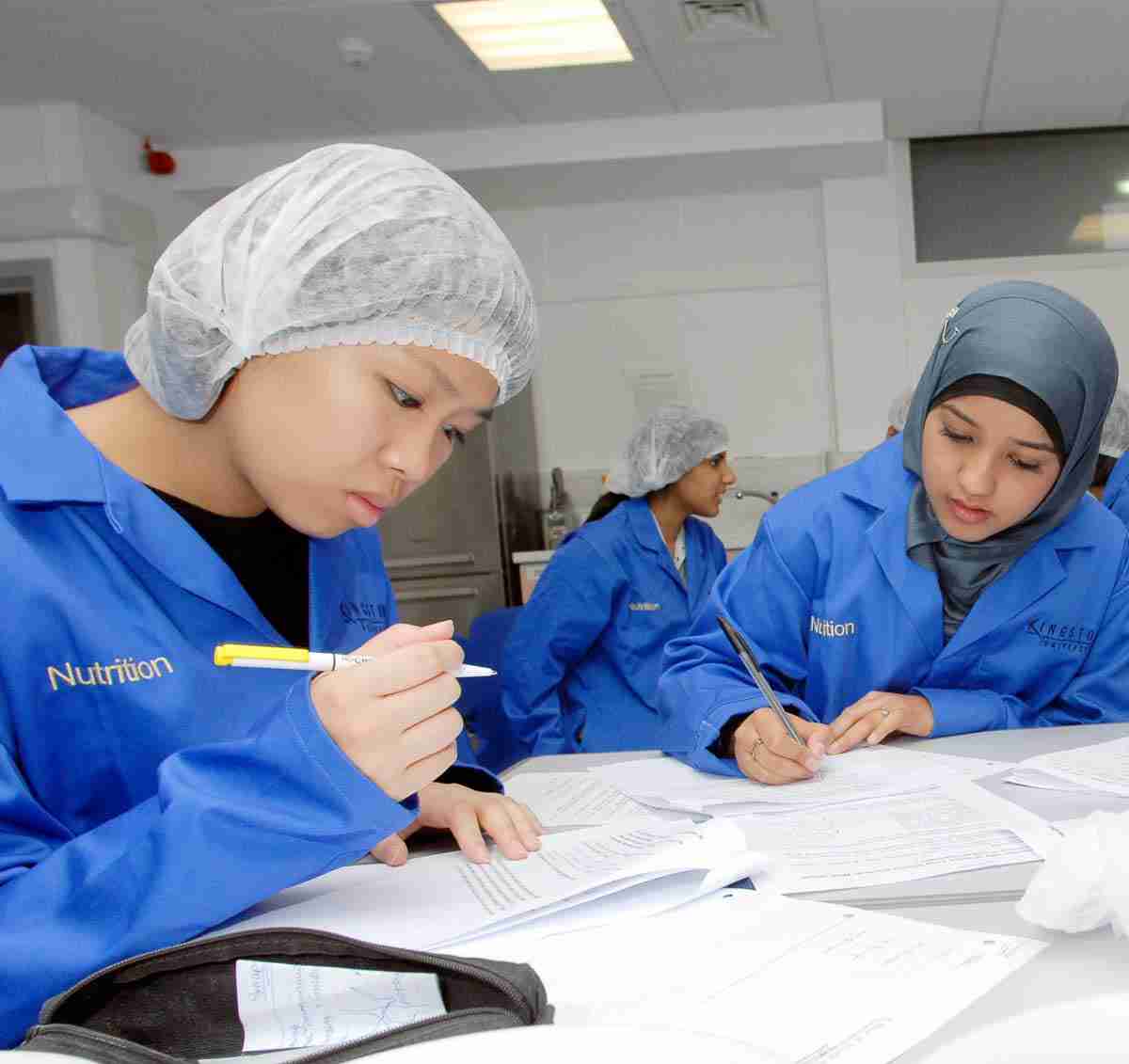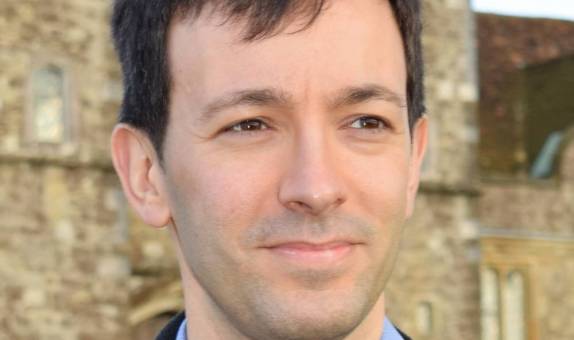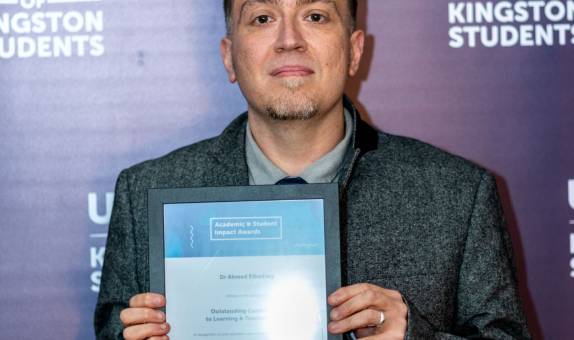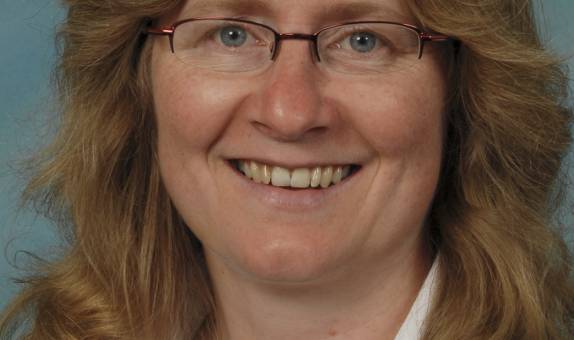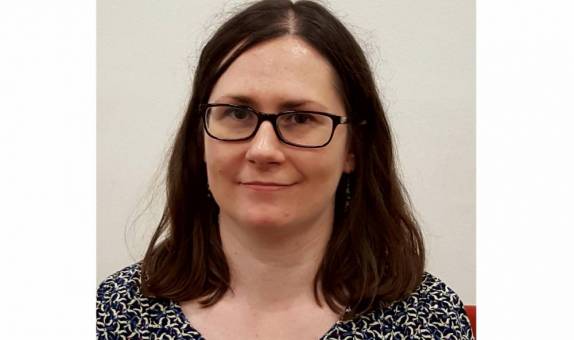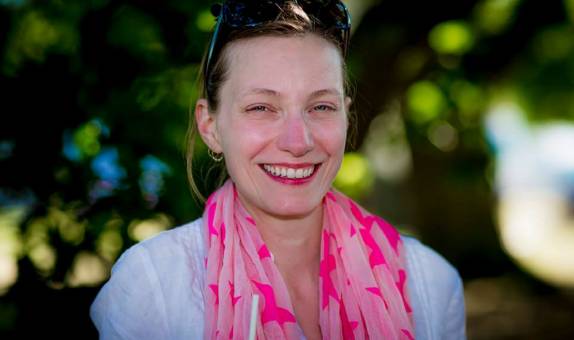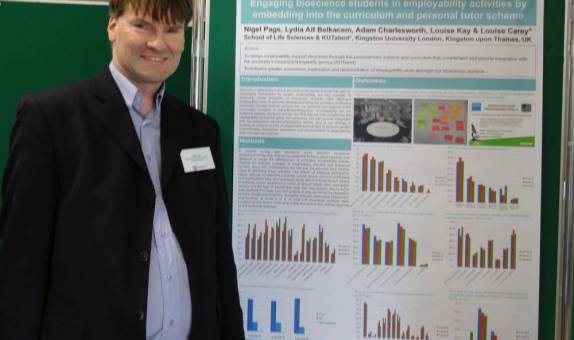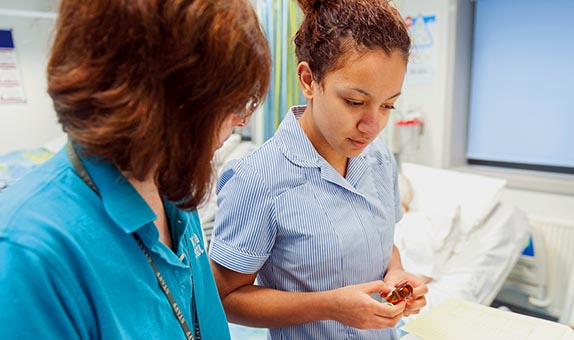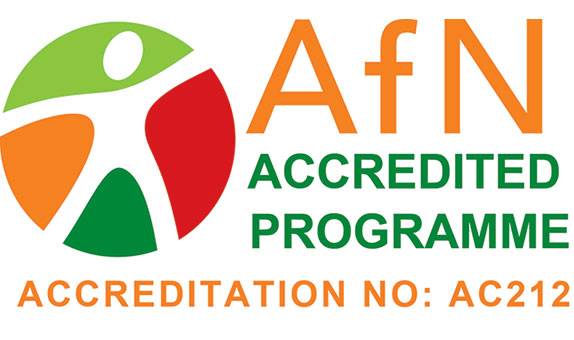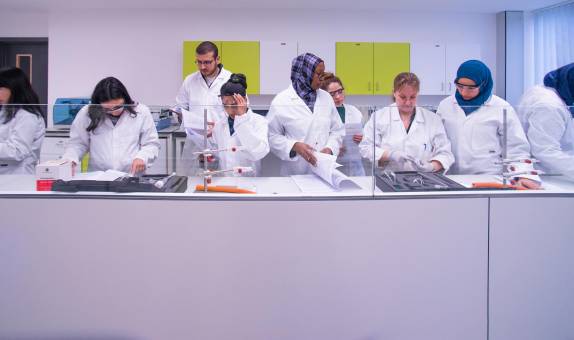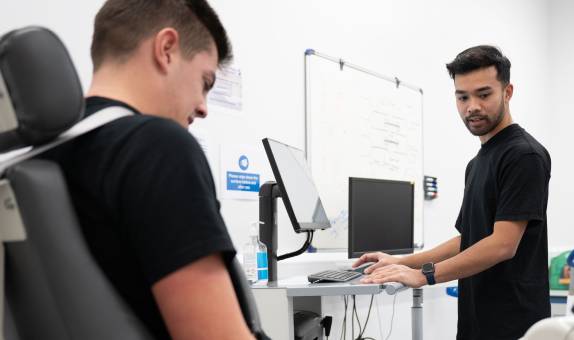Nutrition BSc (Hons)

Teaching Excellence Framework (TEF) Gold award
Our commitment to high quality teaching has been recognised with a TEF Gold rating. The University has received an overall rating of Gold, as well as securing a Gold award in the framework's two new student experience and student outcomes categories.
Why choose this course?
Nutrition is a fascinating and ever-changing field that is essential to our health and well-being. In this degree, you will learn about the science of food and nutrition, how diet impacts our health, how to put together healthy eating plans, and the challenges facing our planet including food security and sustainability. You will also have the opportunity to take a year's industrial placement or go on an international exchange.
Nutrition is a growing field with increasing demand for professionals. It is a rewarding career where you can impact people's lives. In addition to subject knowledge, you will also develop a set of Future Skills Graduate Attributes that will help you succeed in a changing and rapidly evolving world of work. These include problem solving and analytical skills, communication and digital skills, adaptability and resilience, creativity and initiative, critical thinking, and the ability to build relationships.
Nutrition degrees are versatile, giving you the chance to work in different areas plus the chance to specialise further by taking additional postgraduate study. If you are passionate about nutrition and want to make a difference in the world, this degree is for you.
The Nutrition and Dietetics subject area at Kingston University has the top NSS score in London and nationally for 15 out of 27 NSS 2023 questions, scoring 100% in the positivity measure for all 15 questions. This is the highest number of questions to achieve 100% in the positivity measure across all providers in the Nutrition and Dietetics subject area (there are 42 providers with NSS data for 2023).
Note: this course was previously called Nutrition (Human Nutrition) BSc (Hons).
| Attendance | UCAS code/apply | Year of entry |
|---|---|---|
| 3 years full time | B400 | 2024 (Clearing) 2025 |
| 4 years full time including sandwich year | B402 | 2024 (Clearing) 2025 |
| 6 years part time | Apply direct to the University | 2024 (Clearing) 2025 |
Please note: Teaching on this course may take place on more than one KU campus.
| Main Location | Penrhyn Road |
Reasons to choose Kingston University
- This degree is accredited by the Association for Nutrition (AfN). This means you can apply to join the UK Voluntary Register of Nutritionists (UKVRN) as a Registered Associate Nutritionist (ANutr) after you graduate.
- Your learning will be supported by co-curricular activities, highly valued by the Association for Nutrition (AfN) and by employers, who are looking for graduates with practical experience and a commitment to lifelong learning.
- You'll benefit from being part of a friendly and inclusive community of students and staff. Our faculty are experts in teaching, research, and professional practice, and they are passionate about helping you succeed.
- Our Nutrition courses scored 100% in the positivity measures for 15 out of 27 questions in the 2023 NSS survey (top NSS score in London and nationally).
Nutrition at Kingston University
Nutrition kitchen
Our modern nutrition kitchen is a flexible and inviting learning space that is used for a variety of purposes such as food science practicals, research projects, and student nutrition society events.
The kitchen is also used for small group teaching and personal tutor meetings. This makes it a valuable resource for all nutrition students, who can use it to learn, collaborate, and network.
To experience the kitchen for yourself, please take a virtual tour.

What you will study
Year 1
Year 2
Final year
Year 1 of a nutrition degree provides the foundation for studying the science of food and nutrition, with four core modules where you will learn about biochemistry, physiology, and human nutrition, as well as basic food science. This will be supported by general scientific, academic and research skills development.
Core modules
The Biochemical Foundations of Life
30 credits
Learn how the building blocks of life work together to create complex molecules that sustain us. Explore the role of proteins, carbohydrates, and lipids in our bodies, and how they are broken down and used for energy.
Essentials for Sport, Exercise and Nutrition Sciences
30 credits
This module provides an essential introduction to the skills required for undergraduate study and scientific research. It enables you to understand the principles of qualitative and quantitative experimental research. It will introduce and employ statistical techniques for the analysis of sport science and nutrition data. The skills developed in this module will begin to formulate the foundation to later research methods modules and your final year project.
Human Physiology
30 credits
Understand how the human body works and how nutrition affects our health. Explore the fundamental physiological concepts behind topics such as homeostasis, cellular communication, and the movement of molecules through body compartments.
You will also cover the main physiological systems of the body, including the nervous, muscle, endocrine, respiratory, cardiovascular, renal, and of course, the digestive, systems.
Introduction to Food and Nutrition
30 credits
Explore the reasons behind our food choices, why we eat what we eat. Discover the science behind food and nutrition. Learn about the composition of food, basic applications of food science in everyday life, how nutrients are metabolized in the body, how dietary reference values are derived and applied. You will also explore key concepts that underpin energy and nitrogen balance and learn about functions, sources, deficiency and toxicity of vitamins and minerals. You will learn about all macronutrients plus water and alcohol. A busy module but essential knowledge to any aspiring nutritionist.
Year 2 of your nutrition degree builds upon your learning in year 1 to expand your knowledge of topics relevant to our understanding of nutrition and health. You will explore advanced topics in biochemistry, pharmacology, immunology, and microbiology. You will cover these topics whilst also learning about nutrition at different stages of life and how it affects health. You will learn how to obtain and interpret food and nutrient intake data, and you will translate scientific research into accessible language. This involves data analysis and research translation.
By the end of Year 2, you will be well-prepared not only to dive into more complex topics in nutrition but also for your project dissertation in Year 3.
Core modules
Proteins and Metabolism
30 credits
Learn about the structure and function of proteins, including enzymes. Explore how organisms obtain and use energy, from a molecular level to how these processes help in the regulation of health and disease.
Research Methods in Sport, Exercise, and Nutrition Sciences
30 credits
This module focusses on the approaches to research design, data collection techniques and appropriate analyses to make accurate interpretations. It further investigates quantitative and qualitative research methods introduced at Level 4 and introduces you to more advanced techniques. The module provides an essential introduction to research ethics and the ethical approval procedures that are required when using human participants for research.
Skills developed in this module will form the foundation of your final year project module. This module also provides you with an overview of how to recognise and develop key and transferable skills to enhance employability through relevant professional development and research experience. The Future Skills Explore Learning Outcomes are delivered in this module.
Applied Nutrition
30 credits
Learn about how we study diet and health outcomes and the different types of studies we use. You will carry out dietary assessments and learn how we use that data to understand and improve people's health. Our food choices and ability to meet nutritional needs impacts us all, from womb to older adults. This module will help you learn about the nutritional needs of different people across the lifespan as well as what impacts their ability to meet those needs. You will grow your understanding of the needs of individuals and of the groups to which they belong. This module prepares you for studying public health nutrition in your final year.
Infection and Immunity
30 credits
Discover how the human body fights infection. Learn about the different types of microorganisms that can cause disease and how our immune system works and protects us from disease. You will learn more about the structure and function of microbiological agents in health and disease and the immunological responses raised as a consequence by the human body. You will examine a number of microbiological processes, along with methods of controlling the organisms, both in a laboratory environment and within a patient.
You will also become familiar with the different cells and organs of the immune system and how these function and interact to protect the body from infection. The module also introduces some of the molecular processes and signalling events that are important in communication between cells of the human immune system.
In your final year, all your core modules are nutrition modules where you will explore specialised and applied topics, such as the role of nutrition in health and disease, public health nutrition in both developed and developing countries, as well as emerging topics in nutrition such as sustainability and food fortification. You will also have the opportunity to use your critical, research and data analysis skills to conduct an independent research project in a subject of your interest. The final year also offers you an opportunity to choose an optional module to take, which may be more aligned to your personal interests and career aspirations.
Your final year of study will be a challenging but rewarding experience. You will gain the knowledge and skills you need to make a significant contribution to the field of nutrition.
Core modules
Public Health Nutrition
30 credits
In your second-year core nutrition module you focused on the nutritional needs of individuals. That module helped build a strong foundation for this public health nutrition module. You will now learn about the concepts, theories, and practice of health promotion, focusing on diet and physical activity in developing and developed countries. You will examine theories of motivation, behaviour, and strategies of health promotion, as well as the role, influence, and impact of policies on population and client groups. You will also learn about nutritional issues impacting the developing world focusing on the unique challenges of nutritional assessment, food security, sustainability (focusing on sustainable development goals), and the double burden of malnutrition. You will also review the impact of direct and indirect health-care and non-health-care sector interventions who affect nutrition outcomes.
Contemporary Issues in Food and Nutrition
30 credits
Explore areas that have a significant impact on modern day food and nutrition, such as functional foods, novel foods (e.g. insects) nutraceuticals (e.g. probiotics), and the interaction between nutrition and pharmacology (e.g. interaction between grapefruit, cranberry or pomegranate juice with drugs).
Gain in-depth knowledge of emerging and re-emerging topics such as malnutrition, food security and genetically modified foods, and food allergy (e.g. recent topics around early dietary intervention, sustainability, plant-based and vegan products, and new ingredients). We will also cover obesity, diabetes, cardiovascular disease, and cancer as well as the use of advanced body composition techniques.
Project or Dissertation (Nutrition)
30 credits
You spent two years learning about how to select, interpret and use scientific literature. You learned about data analysis and interpretation. You covered a large number of nutrition topics. You can now conduct a capstone project that demonstrates your academic and transferable skills, where you will be able to demonstrate knowledge, understanding, application, and integration of nutrition gained from your taught modules. You will be able to choose a topic to research, more aligned to your interests, e.g. public health, food science, the role of specific compounds in food.
Optional modules
Clinical Chemistry and Haematology (Blood Sciences)
30 credits
You will evaluate the contribution of laboratory investigations to the diagnosis, treatment, and prevention of disease in key areas such as renal disease, diabetes, anaemia, and haematological malignancies. Topics are introduced through a structured lecture series and further explored in practical laboratory sessions. Case histories are used to illustrate current best practice, reinforced by keynote lectures from expert practitioners in the field.
Clinical Immunology and Medical Microbiology
30 credits
This module expands your knowledge gained from the second year module Infection and Immunity. You will learn about diseases caused by overactive immunity (e.g. autoimmune disease and hypersensitivity), immune deficiency (e.g. AIDS), cancer immunology, monoclonal antibodies, and laboratory diagnostics. You will also study selected infectious diseases and their laboratory diagnosis in-depth, using an organ system approach, e.g., infections of the respiratory tract, gastrointestinal tract, and urinary tract.
Health and Exercise Physiology
30 credits
This module covers the acute and chronic physiological changes caused by exercise, giving you an understanding of cardio-respiratory health. You will learn to link exercise physiology to performance. You will understand the role of exercise and physical activity as a prescription therapy to clinical diseases. This module will further develop your understanding by equipping you with the scientific skills to monitor and assess health, fitness and performance.
Sport Nutrition
30 credits
You will examine the physiological, mechanical and psychological responses to nutritional dietary strategies and ergogenic aids for exercise training and competition. Challenge your perceptions and cultural choices of food for a diet suitable to meet the demands of competitive exercise and sport performance. You will explore the nutritional strategies that are used by the general population, from recreational amateurs to elite athletes. You will be able to provide sound guidance for informed dietary choices and optimising a person's competitive performance.
You will learn about the efficacy of carbohydrates, proteins and fats for the provision of, exercise and sport performance with specific focus on current dietary guidelines versus dietary differences – low fat, high fat, intermittent fasting, flexitarian, gluten free, carnivore and vegan diets. You will also explore the significance of gut microbiology and use of pre and probiotics to enhance competitive performances.
You will also explore the psychological impact, such as stress and anxiety, on the relationship between nutrition and the body. You will learn about the dietary needs for exercise dependent on duration and intensity, such as maximising attention and concentration, strength, power, middle distance, speed endurance, ultra-endurance events.
You will learn about the dietary needs for specific groups, including youth athletes, female athletes and how their hormones and cycle can affect nutrition and training.
Other important topics such as the sugar endemic, eating disorders and immunity will also be covered.
Please note
Optional modules only run if there is enough demand. If we have an insufficient number of students interested in an optional module, that module will not be offered for this course.
If you would like to study one of our science degrees at Kingston University but are not yet ready to join the first year of a BSc (Hons) course, you can include an extra foundation year within your chosen degree. Please see the science foundation year course page for details of modules.
Future Skills
Knowledge to give you the edge
Embedded within every course curriculum and throughout the whole Kingston experience, Future Skills will play a role in shaping you to become a future-proof graduate, providing you with the skills most valued by employers such as problem-solving, digital competency, and adaptability.
As you progress through your degree, you'll learn to navigate, explore and apply these graduate skills, learning to demonstrate and articulate to employers how future skills give you the edge.
At Kingston University, we're not just keeping up with change, we're creating it.

Entry requirements
If you would like to join us through Clearing 2024, please call our Clearing line on 0800 0483 334 (or +44 020 8328 1149 if you are calling from outside the UK) and speak to our friendly and knowledgeable hotliners who will be able to provide information on available courses and will guide you through your options.
Please note the entry requirements listed below are for 2025 entry only.
Teaching and assessment
Scheduled learning and teaching on this course includes timetabled activities including lectures, seminars and small group tutorials.
It may also include placements, project work, practical sessions, workshops, conferences and field trips.
Who teaches this course
This course is taught by a team of experienced lecturers from the School of Life Sciences, Pharmacy and Chemistry. The School offers a wide range of undergraduate and postgraduate programs not only in nutrition and sport science but also in biological and biomedical sciences, chemistry, forensic science, pharmacy, pharmacological and pharmaceutical sciences.
We have invested heavily in new facilities, including laboratories for teaching and research. This means that students have access to ultra-modern equipment in a wide range of teaching facilities.
Our nutrition lecturers are experts in their field. They are either:
- Registered nutritionists with the Association for Nutrition (AfN).
- Registered dietitians with the British Dietetic Association and the Health and Care Professions Council (HCPC).
Facilities
Our Penrhyn Road campus is home to a wide range of facilities for practical work, including:
- The £20 million John Galsworthy building, which houses lecture theatres, flexible teaching space, and information technology suites.
- The £9.8 million Eadweard Muybridge building, which features state-of-the-art laboratories for exercise physiology, biomechanics, body composition analysis, and food science.
- A bomb calorimeter, which is used to measure the energy content of foods.
- A refurbished nutrition kitchen that is used for food science and research projects, as well as small group teaching and personal tutor meetings.
- Dedicated space for all nutrition students.
- Project research labs where students complete lab work for their final-year research project.
- Specialist equipment, such as electron microscopes and spectrometers.
- Computing laboratories with a team of IT technicians to offer assistance.
The Penrhyn Road library offers:
- Subject libraries, plus a free inter-library loan scheme to other libraries in the Greater London area.
- Online database subscriptions.
- A growing selection of resource material.
We are committed to providing our students with the best possible learning environment, and our facilities are designed to help you succeed.

Course fees and funding
Additional costs
Depending on the programme of study, there may be extra costs that are not covered by tuition fees which students will need to consider when planning their studies. Tuition fees cover the cost of your teaching, assessment and operating University facilities such as the library, access to shared IT equipment and other support services. Accommodation and living costs are not included in our fees.
Where a course has additional expenses, we make every effort to highlight them. These may include optional field trips, materials (e.g. art, design, engineering), security checks such as DBS, uniforms, specialist clothing or professional memberships.
Accreditation
How we work with professional bodies
The course is accredited for September 2023 entry by the Association for Nutrition. This means that graduates can apply to join the UK Voluntary Register of Nutritionists (UKVRN) as a Registered Associate Nutritionist (ANutr) without having to prove competence. The course was first accredited in 2007, and it has been reaccredited several times since then (last one in 2022, once every five years usually).
The Association for Nutrition is a professional body that regulates and registers nutritionists. It sets proficiency and competence criteria, promotes continuing professional development, and accredits university undergraduate and postgraduate courses.
We are committed to providing our students with the best possible education. Our partnerships with professional bodies ensure that our students are taught by experts in the field and that they have the opportunity to gain the skills and knowledge they need to succeed in their careers.
Here are some of the benefits of studying on an accredited course:
- You will be taught by experts in the field.
- Your course will be well structured and organised.
- Your course will be relevant to the profession.
- You will have the opportunity to gain the skills and knowledge you need to succeed in your career.
- You will be more employable.
- An external body has given a mark of quality to the course.
- You will be able to join the UK Voluntary Register of Nutritionists (UKVRN) as a Registered Associate Nutritionist (ANutr) without having to prove competence.
After you graduate
Careers and progression
Nutrition is a growing field, with a wide range of career opportunities. You could work in industry, the public sector or academia. Some specific roles include:
- public health nutritionist
- NHS nutritionist or dietetics assistant
- clinical researcher
- food technologist
- product developer
- health coach
- clinical trials coordinator
- freelance nutritionist
- science correspondent/writer
- nutrition scientist
- project officer.
You can also complete further training by applying to postgraduate study (including teacher training) such as taught masters, masters by research and doctorate studies.
What our students say
Nutrition at Kingston
Watch nutrition student Michael Garcia talk about his experience studying at Kingston University whilst doing his placement at St. George's Hospital with The Marfan Trust:
Work placement year
How you can work in industry during your course
Why take a placement? Work placements:
-
provide work experience that is relevant to your course and future career
-
improve your chances of graduating with a higher grade degree
-
enhance your CV
-
lead to a graduate job
-
enable you to earn a year's salary whilst studying (the vast majority of placements are paid)
-
help you to select your final-year project
-
Many employers offer a graduate job to their successful placement students.
There is a lot of support available for students looking to secure a placement (e.g. a jobs board with placement vacancies, help with writing CVs and mock interviews). Getting a placement and passing the placement year are ultimately the student's responsibility.
Examples of placements
Placements can be with large multinational companies, international companies, local companies and small start ups; offering a diverse range of posts. Here are some examples of employers and roles:
|
Science-based placement employers |
Science-based placement roles |
|---|---|
|
Reckitt and Benckiser |
Bioanalytical sciences |
Key information set
The scrolling banner(s) below display some key factual data about this course (including different course combinations or delivery modes of this course where relevant).
Course changes and regulations
The information on this page reflects the currently intended course structure and module details. To improve your student experience and the quality of your degree, we may review and change the material information of this course. Course changes explained.
Programme Specifications for the course are published ahead of each academic year.
Regulations governing this course can be found on our website.

